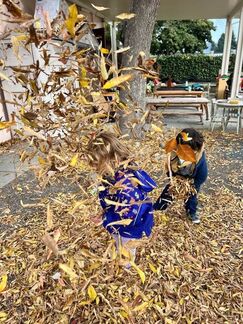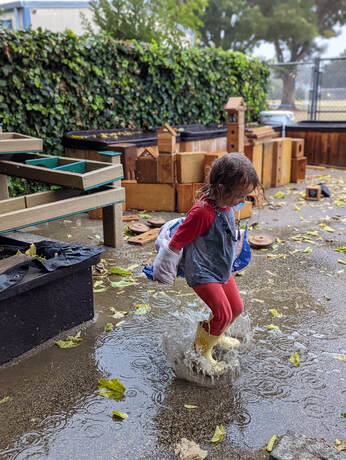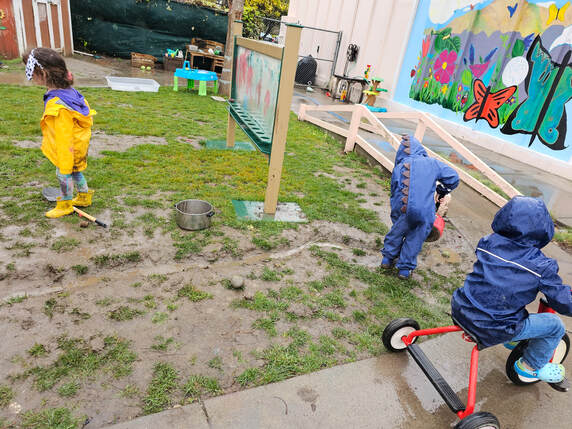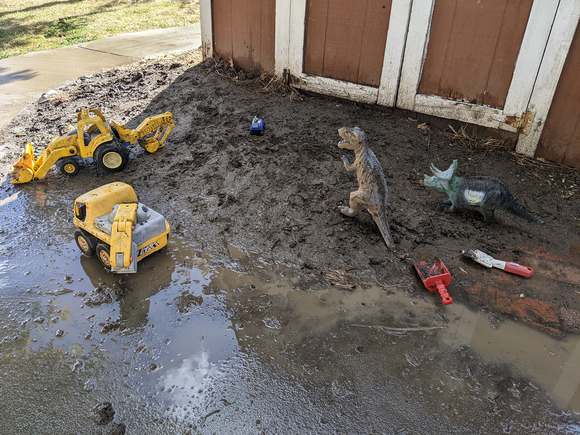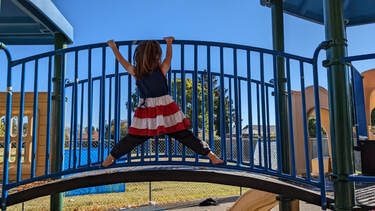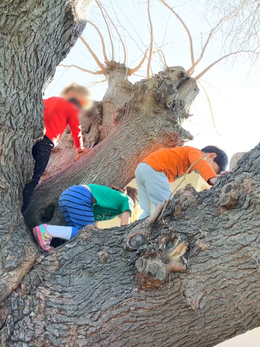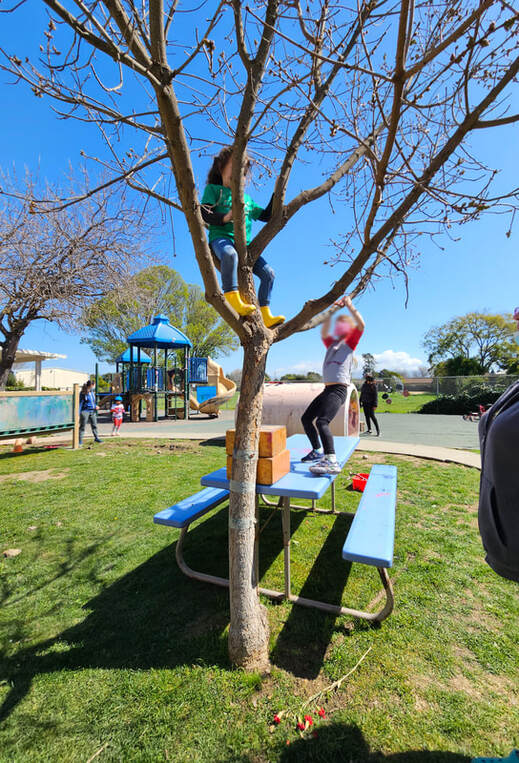The Magic of Learning Through Play: Embracing the Outdoors and Risky Play
Our spacious, park-like setting allows children to experience the natural world as an extension of our indoor environment. Children benefit from spending large blocks of time in the outdoors, and their development is optimized through child-initiated activities, with teacher support. In the outdoors, children use bikes, and climbing equipment to learn how to use their body effectively and to experience the satisfaction of learning a new skill. Sand and water and the ability to creatively use ‘loose parts’, foster self expression and sensory pleasure by working with different mediums. Recent findings in brain development additionally show a direct correlation between what a child does physically and in future academic abilities such as reading, writing, mathematics and creativity. At FPNS, we champion the idea of giving our students the freedom to venture outside whenever they choose, in every season and weather.
Learning Through Play
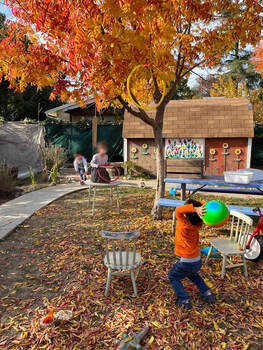
Children are born explorers. Their inherent curiosity combined with their vibrant imagination positions play as the perfect medium for learning. Every imaginative game, every peer interaction, and every hands-on challenge offers a world of educational experiences.
- Emotional and Social Skills: Within the playground's confines, kids grasp concepts like patience, sharing, and empathy. As they step into roles, whether it's a heroic firefighter or a busy mud kitchen baker, they're not just having fun but absorbing societal roles and responsibilities.
- Problem-solving Skills: Challenges like designing the tallest sandcastle, orchestrating a make-believe world, or navigating a complex playground apparatus foster problem-solving and critical thinking.
- Language Development: The narratives built during play, whether between superheroes or woodland creatures, aid in vocabulary enrichment and language comprehension, creating a space for inquiry, self-expression, and storytelling.
Embracing Risky Play in a Safe Environment
|
6 Types of risky play (Hansen Sandseter, 2007):
What is the role of the teachers and parents in risky play? At FPNS we equip our teachers and parents to identify hazards, and communicate with children in an empowering way to make reasonably safe choices for themselves. We encourage the adults to explore their fears and concerns and discuss the likelihood of those perceived outcomes. Over time, adults learn to trust children to follow their curiosities and desires in taking risks of their own choosing. Why Risky Play? Children seem to have a sensory need to experience danger and excitement. Through repeated experiences, “children learn to manage, control, and even overcome fears” (Hanscom, 2016, pg. 125). Children who experience risks and danger may have fewer fears as they grow older. Taking risks can be fun. Children express exhilaration, joy, excitement, and fear during risky play (Beate & Sandseter, 2009). Some of these emotions are felt at the same time as the children move through fear to joy and excitement. |
Benefits of Risky Play
Through risky play, children learn and develop:
Through risky play, children learn and develop:
- Gross motor development: When children are allowed to use the big muscles in their arms, legs, and torso to climb, swing, build, and jump they are developing strength, coordination, and body awareness.
- Resilience: When a child works toward learning a new skill or trying something new, they learn resilience. The first time they might not make it up the ladder, or they might not get up the tree. But if they keep trying, they develop the resilience and persistence they will need later in life. And when they do accomplish their task, they experience the pride and confidence from trying something hard and accomplishing a hard task.
- Problem solving skills and risk assessment: When children approach a risky task, they (sometimes with adult support) must solve problems. They learn to determine the level of risk they are willing to take, their comfort level, and learn how to make those assessments for themselves.

